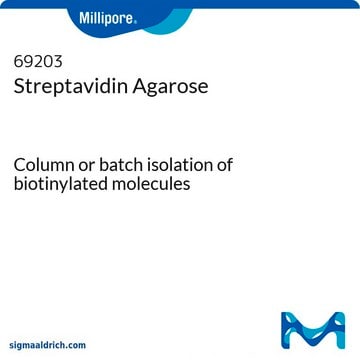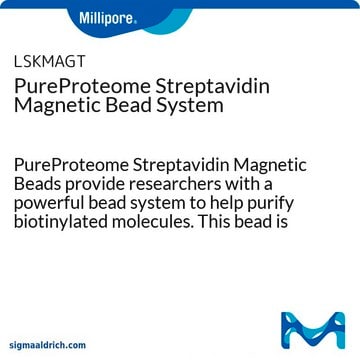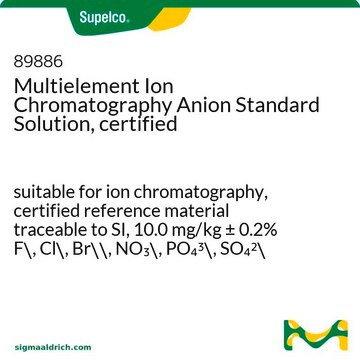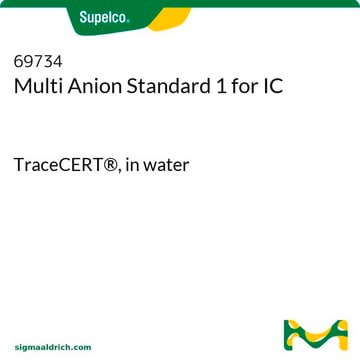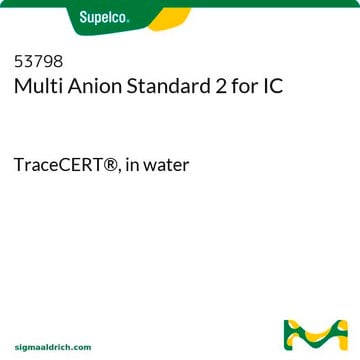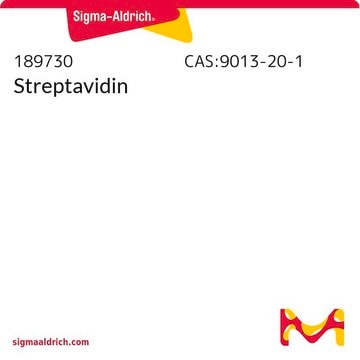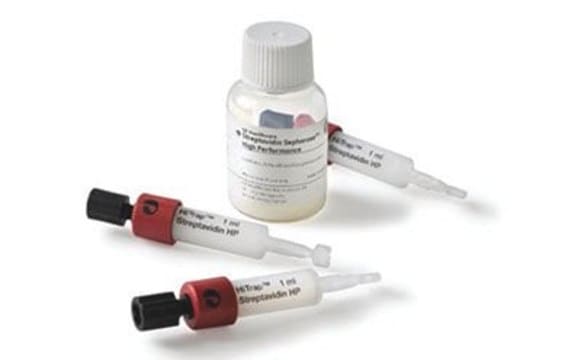59758
Streptavidin particles, magnetic
≥2 U/mg
Synonym(s):
Magnetic streptavidin particles
Sign Into View Organizational & Contract Pricing
All Photos(1)
About This Item
UNSPSC Code:
12352116
NACRES:
NA.32
Recommended Products
specific activity
≥2 U/mg
concentration
5 mg/mL
storage temp.
2-8°C
Application
Streptavidin particles, magnetic may be used to bind biotin-conjugated molecules such as antibodies or DNA primers for use in gel agglutination assays.
Unit Definition
1 U corresponds to the amount of particles which bind 1 ug (+)-biotin
Storage Class Code
12 - Non Combustible Liquids
WGK
nwg
Flash Point(F)
Not applicable
Flash Point(C)
Not applicable
Personal Protective Equipment
dust mask type N95 (US), Eyeshields, Gloves
Certificates of Analysis (COA)
Search for Certificates of Analysis (COA) by entering the products Lot/Batch Number. Lot and Batch Numbers can be found on a product’s label following the words ‘Lot’ or ‘Batch’.
Already Own This Product?
Find documentation for the products that you have recently purchased in the Document Library.
Customers Also Viewed
O Meyer et al.
Tissue antigens, 71(2), 157-159 (2007-11-17)
We describe a simple and rapid particle gel agglutination assay (PaGIA) for typing of the human leucocyte antigens (HLA) HLA-A2, HLA-B7 and HLA-B27. Superparamagnetic streptavidin particles were coated with biotinylated monoclonal antibodies (MoAbs) to HLA-A2, HLA-B7 and HLA-B27. Anticoagulated whole
O Meyer et al.
Vox sanguinis, 91(1), 77-80 (2006-06-08)
The human leucocyte antigen (HLA) B27 is the most frequently typed single antigen that is associated with diseases. Here, we describe a simple and rapid particle agglutination assay (PaGIA) for HLA-B27 typing. Superparamagnetic particles were coated with a monoclonal antibody
C Schönemann et al.
International journal of immunogenetics, 34(5), 337-339 (2007-09-12)
In this study, we describe a simple and rapid agglutination test for the detection of PCR products prior to the application of specific hybridization by sequence-specific oligonucleotide typing. This test is based on the particle gel agglutination immunoassay, incorporating biotinylated
Our team of scientists has experience in all areas of research including Life Science, Material Science, Chemical Synthesis, Chromatography, Analytical and many others.
Contact Technical Service

